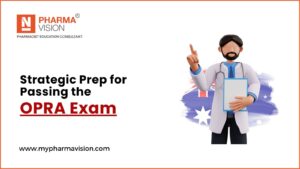10 Essential Skills Every Pharmacist Must Have
Pharmacists play a crucial role in the healthcare system, ensuring patients receive the right medications, proper guidance, and ongoing care. To excel in this profession, pharmacists must possess a blend of technical knowledge, interpersonal skills, and adaptability. Here are the 10 essential skills every pharmacist must have to thrive in their career.
1. Every Pharmacist Must Have Attention to Detail
Pharmacists must be meticulous when dispensing medications, checking prescriptions, and ensuring accuracy. Even a small error can have serious consequences for patient safety. As a result, pharmacists need to maintain a high level of focus to prevent mistakes and ensure the best possible care.
2. Communication Skills
Clear communication is key for pharmacists. They must explain medication usage, potential side effects, and interact with other healthcare professionals. Therefore, being able to convey complex information in a simple and concise manner is vital for patient safety and collaboration with the medical team.
3. Medical and Pharmaceutical Knowledge
A strong foundation in pharmacology, drug interactions, and therapeutic principles is essential. Pharmacists are trusted to make informed decisions about patient care based on their knowledge. Thus, staying updated on new medications and healthcare protocols is crucial for ensuring the best outcomes.
4. Problem-Solving Skills
Pharmacists often encounter complex medical or prescription issues. For instance, they may need to make quick judgments in critical care situations or resolve discrepancies in prescriptions. Strong problem-solving abilities allow them to navigate these challenges and ensure patient safety.
5. Interpersonal Skills
Interacting with patients is a major part of a pharmacist’s role. Building rapport, listening to concerns, and offering support are essential for establishing trust. In addition, pharmacists collaborate with healthcare teams, making interpersonal skills key for effective teamwork.
6. Ethical and Professional Integrity
Pharmacists must adhere to ethical guidelines, maintain patient confidentiality, and make decisions that prioritize patient welfare. As such, ethical integrity is essential, particularly when navigating complex legal and medical frameworks.
7. Time Management
Pharmacists often juggle multiple responsibilities, from patient consultations to prescription filling and administrative duties. Therefore, strong time management skills are essential for maintaining efficiency while ensuring high-quality patient care.
8. Adaptability
Healthcare is constantly evolving, with new drugs, technologies, and regulations emerging regularly. Pharmacists must stay updated and adaptable to these changes. Consequently, they need to be flexible in their role to provide the most up-to-date and effective patient care.
9. Customer Service Orientation
Pharmacists are on the front lines of patient care, providing not only medication but also support and advice. In fact, their ability to address patient concerns empathetically is key to fostering trust and ensuring positive healthcare experiences.
10. Critical Thinking
Pharmacists need to assess patient histories, evaluate potential drug interactions, and determine the most appropriate medication therapies. Particularly in complex cases, critical thinking is necessary to ensure that patients receive safe and effective treatments.
Conclusion
These 10 essential skills are crucial for pharmacists to deliver high-quality, patient-centered care. As the healthcare landscape continues to evolve, pharmacists who cultivate these abilities will be better prepared to meet the demands of their profession and make meaningful contributions to patient health.












